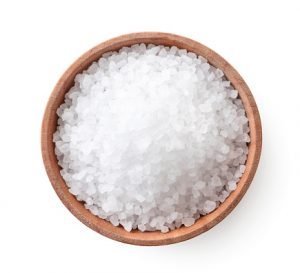Hydrogen is a chemical element that is colorless, odorless, and flammable. Around the world, this element is widely used in very many different sectors; for example, it is used in electronics, chemical industries, food, glass, and refining industries. In addition, due to its lightweight, hydrogen is also used in some space applications where it is used as a clean fuel to fuel cells. Hydrogen may be extracted from various sources, including; natural gas, coal, heavy oil, naphtha, and water. Among other elements in the universe, hydrogen is the most basic. In the scientific periodic table, hydrogen is the first element with a chemical symbol of (H).
1. Ammonia synthesis/ production
Ammonia is basically a compound of two elements that is hydrogen and nitrogen, and that makes hydrogen a key element in its production. Ammonia is produced under the Haber- Bosch process, where both nitrogen and hydrogen are combined under pressure also under the presence of a metal catalyst.
2. Rocket propellant
When combined with oxygen, hydrogen gas is used as a rocket fuel, as well as a rocket propellant in nuclear energy.
3. fuel in internal combustion engines
Hydrogen gas immediately burns when it is reacted or exposed to oxygen. It is preferred as a fuel since there are no emissions, and with that, there is no air pollution.
4. Gas welding
Hydrogen is well known for its generation of high temperatures, and it is, for this reason, it is used in the welding processes. The high temperatures produced by hydrogen, 4000 degrees to be precise, ends up in melting metals, and in the process, broken surfaces are joined. In addition, also, hydrogen shields metals that have burnt at high temperatures from reacting with other metals.
5. Production of hydrochloric acid
Hydrochloric acid is made up of two elements that are chlorine and hydrogen. In the presence of UV light, pure chlorine gas is reacted with hydrogen to form hydrochloric acid.
6. Reduction of metallic ores
Hydrogen is used as a reducing agent, and this property helps it to extract tungsten from its core, and this is mostly for commercial purposes. As a reducing agent, hydrogen is used to produce others such as gold, silver, and platinum.
7. Filling balloons
In most air balloons, hydrogen gas has been used for many years because it is lightweight and affordable. Hydrogen, however, is highly explosive, and for that, it is slowly being replaced by helium, which is a stable gas and highly nonreactive.
8. Chemical analysis
In most chemical analyses, hydrogen is used as a fuel to generate heat, and in the production of neutral atoms. One of the known methods where hydrogen is used is atomic absorption spectroscopy.
9. Methanol production
Methanol production can be made in many ways, and in two ways, hydrogen is a key factor. One way is methanol can be produced by directly reacting both hydrogen and carbon dioxide. The second method is methanol is produced from synthesis gas, which is carbon monoxide and hydrogen inside a rector where a catalyst of aluminum pellets is introduced. The aluminum pellets are mostly covered with copper and zinc oxides.
10. Hydrogenation of fats and oils
Most food industries value hydrogen since they use it to make hydrogenated vegetable oils, which include; butter and margarine. In short, hydrogen is used to make unsaturated fats into saturated fats and oils.
11. Makes hydrogen peroxide
Hydrogen peroxide is made of two elements that are oxygen and hydrogen, and the two are reacted in a process that involves other reactors, but eventually, they form hydrogen peroxide, which is used as a disinfectant and also as a bleaching agent, especially for hair, among other uses.
12. Mass destructive bombs
Hydrogen is highly explosive, and most bomb experts have used it to create weapons of mass destruction.
13. Gas chromatography
Gas chromatography is the process of separating volatile substances, and hydrogen is essential in this procedure since it is used as a carrier phase.
14. Production of electricity
Electricity is produced when hydrogen and oxygen atoms are combined in a hydrogen cell. This happens if the reaction of the two elements is done across an electrochemical cell that is the same as that of a battery.
15. Ultraviolent lamps
Hydrogen gas is used in deuterium arc lamps when it’s in the form of deuterium. The hydrogen gas in this form is responsible for the production of ultraviolet light. In the lamps, there is a tungsten filament responsible for heat generation, and that heat gets to the deuterium atoms, which in this case are hydrogen atoms that produce ultraviolet light.
16. Petroleum refinery
In the petroleum industry, hydrogen is used to remove sulfur content, while in other refineries, it is used to get rid of the sulfur content in diesel. In addition, hydrogen gas is used in these refineries since it is helpful in other processes such as hydrodealkylation, hydrocracking, hydrodesulfurization, and hydroisomerization.
17. Reducing agent
In redox reactions, hydrogen is useful. A redox reaction is where some elements are reduced while others are oxidized.
18. Used as a coolant
Hydrogen is used as a coolant in most modern electrical generators to cool the rotor. This is made possible since hydrogen contains some properties such as; low density, cleanness, has a higher thermal conductivity, and lastly because it has high heat capacity.
19. Energy carrier
It is used as a fuel for hydrogen fuel cells, which are mostly used in automobiles such as trains, bikes, and others like laptops. One should also understand that hydrogen gas is not used and an energy source, but rather it stores and delivers energy in the form that it can easily be used.
20. Industrial cooking oil
In this industry, hydrogen has been used the increase the saturation level of fats and oils, and the most important one being vegetable cooking oil.
In conclusion, Hydrogen gas has shown that it can be used in most industries, and for various reasons; some may be due to its high heat intensity, low weight, and high density, among others. As a fuel though for automobiles, hydrogen may get a little bit expensive.



